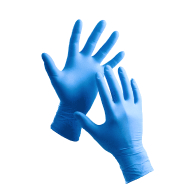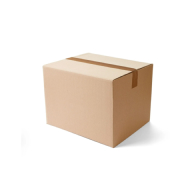U-Power Pluton Black Carbon Stretch Jacket
Product description
Related Content
4-Way Stretch Jacket (U-Power 4 way stretch)
Product Features:
- Very comfortable and soft on the skin
- Durable
- Water-repellent
- Breathable and quick-drying
- 2 front zip pockets
- 1 chest phone pocket with zipper
- 2 large inner pockets
- Adjustable, retractable hood
- Windproof, elastic cuffs
- Adjustable drawstring in pocket
- Shaped hem
- Reflective tape on back of collar
This model can be combined with the Atom trousers.
Defines how sleeve ends are finished and secured at the wrist, affecting weather protection, comfort, and compatibility with work gloves.
The mechanism that secures the garment, affecting ease of use, security, and functionality. Different styles offer varying levels of quick access and durability.
Defines the neck area design that affects weather protection, comfort, and compatibility with safety equipment like helmets and other PPE.
Describes how the jacket sits on the body, affecting comfort, mobility, and layering options. Choose loose for maximum freedom, regular for balanced wear, or slim for a closer fit.
Defines the jacket's structural design, such as hooded, parka, or bomber, affecting weather protection, visibility, and functionality for specific work environments.
Designed for secure phone storage and easy access. Keeps devices protected and readily available on the job. Ideal for convenience and efficiency.
Provides secure, concealed storage inside the garment. Ideal for protecting valuables and personal items from the elements and potential loss.
Offers secure storage for valuables and tools. Zipper closure keeps items safe and protected during demanding work conditions.
Indicates the jacket's primary hue, affecting visibility, practicality, and compliance with workplace safety standards or team identification.
Measured in grams per square meter (g/m²), indicating fabric density and durability. Higher numbers mean heavier, more protective materials for demanding environments.
- Cold Protective
- High Visibility
- Water Resistance
- Machine Washable
Request a free sample
Test first and buy later. Visit any product page to request your free sample.
Standards and labels
EN ISO 13936-1:2004 is a standard that defines the methods for testing the tensile properties of textile fabrics. It includes requirements for testing equipment, sample preparation, and test procedures. Test results should include the maximum force, elongation at maximum force, and the force at specified elongation, measured in newtons, percent, and newtons respectively. The standard applies to all types of fabrics, and it is used to measure how strong a fabric is when pulled, and how much it stretches when it is pulled. The results are used to compare the strength and stretch of different fabrics and to determine the suitability of a fabric for a particular end use.
EN 13688:2013/A1:2021 is an amendment to the European standard EN 13688:2013 that specifies the performance requirements for protective clothing. The standard includes requirements for safety, comfort, and durability, as well as tests for determining these properties. Protective clothing includes items like coveralls, aprons, and gloves that are worn to protect the wearer from hazards. The amendment updates the standard to include new test methods and performance requirements. Possible test results include resistance to chemicals, heat, abrasion and tearing, as well as breathability and comfort. The clothing can be tested under different conditions to check if it meets the standard's requirements.
EN ISO 12947-2:2016 is a standard for testing colorfastness of textiles. It sets guidelines for testing how well a textile can keep its color when exposed to light, washing, perspiration and rubbing. The textile needs to meet certain requirements such as resistance to fading, change in color, and staining. The test results will give a grade from 1-5, 1 being the lowest and 5 being the highest, 5 indicating excellent colorfastness.
EN ISO 13934-2:2014 is a standard that specifies the methods for testing the breaking strength and elongation at break of textile fabrics. It includes requirements for testing equipment, sample preparation, and test procedures. Test results should include the breaking strength and elongation at break, measured in newtons and percent, respectively.
EN ISO 13935-2:2014 is a standard that defines the methods for testing the tear propagation resistance of textile fabrics. It includes requirements for testing equipment, sample preparation and test procedures. Test results should include the tear propagation resistance, measured in newton. The standard applies to all types of fabrics, and it is used to measure how well a fabric resists tearing or spreading of a tear once it has started. The test results are used to compare the tear resistance of different fabrics and to determine the suitability of a fabric for a particular end use.
EN ISO 13937-1:2000 is a standard that defines the methods for testing the bursting strength of textile fabrics. It includes requirements for testing equipment, sample preparation and test procedures. Test results should include the bursting strength, measured in kPa (kilopascals). The standard applies to all types of fabrics, and it is used to measure how much pressure a fabric can withstand before it breaks. The results are used to compare the bursting strength of different fabrics and to determine the suitability of a fabric for a particular end use.
Textiles are materials made from fibers, such as cotton, wool, or polyester. In Europe, there are rules for how textiles should be made, sold, and labeled. These rules are set by the European Union. These rules ensure that textiles are safe and do not contain harmful chemicals, that they are labeled correctly and that the use of certain dangerous chemicals are banned. These rules are set to protect the health and safety of consumers and the environment. Companies that make or sell textiles in the EU must comply with these rules.
CE Marking is a label that shows a product meets certain safety and environmental standards set by the European Union. To get the CE Marking, a company must test and certify their product meets these standards. CE Marking is required for many products sold in the EU, including electronics, machinery, toys and medical devices. It helps ensure that products are safe for consumers and the environment, and allows for easy trade within the EU.
PPE stands for "personal protective equipment." PPE Category 1 refers to equipment that is simple and easy to use, and has a lower level of risk. Examples of PPE Category 1 include gloves, goggles, and simple respirators. In Europe, PPE Category 1 must meet certain safety standards set by the European Union. This means that it must be designed and manufactured to protect the user without causing harm. Companies that make or sell PPE must prove that it meets these standards.
U-Power delivery terms
Free delivery when you order more than 1 650,00 kr from U-Power
Supplier shipping fee 60,00 kr
Brand minimum 0,00 kr
644,28 kr
Price per piece
644,28 kr / piece
Shipping fee is 60,00 kr for orders under 1 650,00 kr
Sold in units of one piece
Need larger quantities?
Other products you may like
Recently viewed
Need help?
Get help from our experts
Other products you may like
Similar products you may like
Recommended for you
U-Power
Delivery time: 5 business days
Supplier shipping fee 60,00 €
Free shipping on orders over 1 650,00 €



Find +150,000 products from hundreds of brands
Autonomous sourcing platform
The most efficient way to source and order supplies for your operations
Sourcing
Ordering
List products you’re looking for and we’ll find the best products and prices for you – all for free.
Need help?
Get help from our experts
